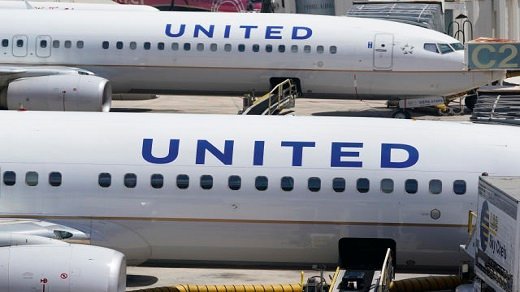In recent times, the aviation industry has faced a myriad of challenges, and United Airlines is no exception. One of the most pressing issues that the airline is currently grappling with is the grounding of aircraft, which has not only disrupted their operations but also threatens to dent their profitability significantly. In this article, we will delve into the details of how United Airlines is poised to lose money over Boeing groundings and explore the broader implications for both the airline and the aviation industry as a whole.
The Boeing Groundings Saga
The Boeing groundings can be traced back to a series of unfortunate events involving the 737 MAX aircraft. These incidents prompted aviation authorities across the globe, including the Federal Aviation Administration (FAA), to ground the 737 MAX fleet in March 2019. The reason for this unprecedented move was a series of two fatal crashes involving the 737 MAX within a span of just five months.
Impact on United Airlines
As one of the major carriers in the United States, United Airlines had a substantial number of Boeing 737 MAX aircraft in its fleet. The grounding of these planes had an immediate and profound impact on the airline’s operations. Here are some key areas where United Airlines has been hit hard:
Disrupted Flight Schedules
The grounding of 737 MAX aircraft forced United Airlines to cancel numerous flights, leading to a disrupted flight schedule. Passengers faced inconveniences, and the airline had to redirect resources to accommodate affected travelers, which incurred additional costs.
Increased Maintenance and Storage Costs
With the Boeing 737 MAX fleet grounded indefinitely, United Airlines had to ensure the proper storage and maintenance of these aircraft. This added to the airline’s operational expenses, as they had to allocate resources to preserve the planes in a flight-ready condition.
Loss of Revenue
Perhaps the most significant blow to United Airlines was the loss of revenue stemming from the inability to operate their Boeing 737 MAX aircraft. These planes are known for their fuel efficiency and capacity, making them crucial for the airline’s profitability.
Financial Consequences
The financial repercussions of the Boeing groundings for United Airlines are far-reaching. The following are some of the key financial aspects impacted by this crisis:
Revenue Loss
United Airlines reported substantial revenue losses as a direct result of the Boeing groundings. The inability to operate a portion of their fleet translated into millions of dollars in lost revenue.
Increased Operational Costs
To cope with the situation, United Airlines had to allocate additional funds to cover maintenance, storage, and operational costs related to the grounded Boeing 737 MAX aircraft. These unexpected expenses further strained the airline’s finances.
Impact on Stock Prices
Investor confidence in United Airlines also took a hit, leading to a decline in the company’s stock prices. The uncertainty surrounding when the Boeing 737 MAX aircraft would be cleared to fly again weighed heavily on shareholders’ minds.
The Path Forward
United Airlines, like other carriers affected by the Boeing groundings, has been working closely with aviation authorities to address safety concerns and ensure the safe return of the 737 MAX aircraft to service. The gradual reintroduction of these planes is expected to alleviate some of the financial pressures the airline has been facing.
Conclusion
In conclusion, the Boeing groundings have cast a long shadow over United Airlines. The disruption to their operations, the financial setbacks, and the challenges of regaining passenger trust have all contributed to a scenario where the airline is poised to lose money. While the aviation industry is no stranger to turbulence, United Airlines must navigate these challenging times and work towards a brighter, more profitable future.



